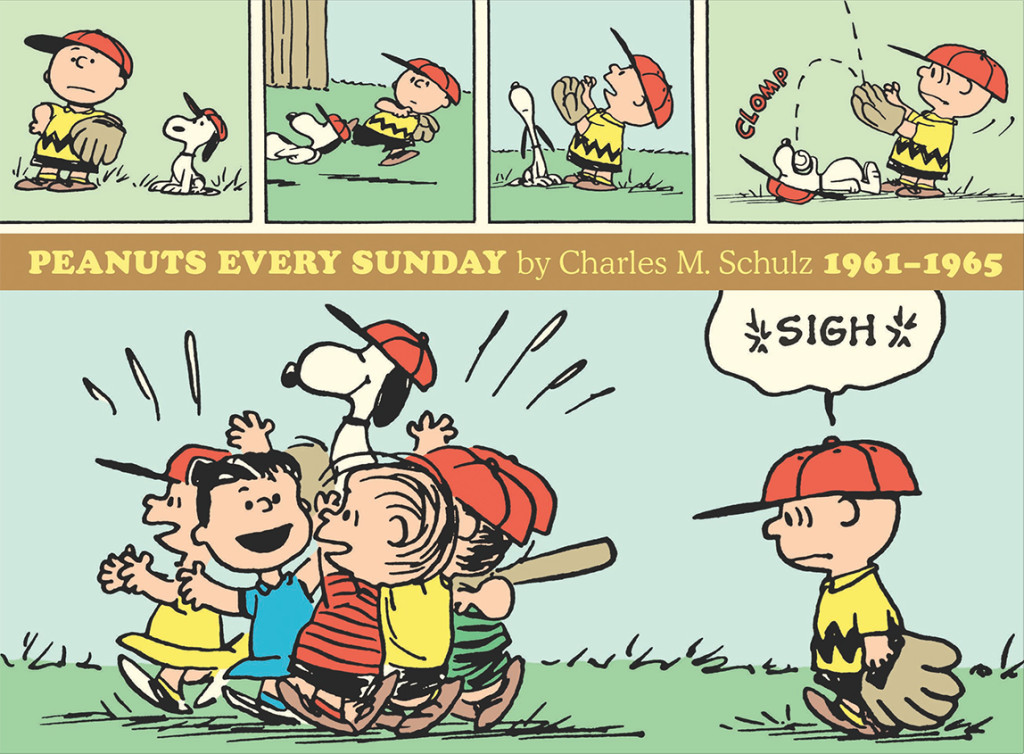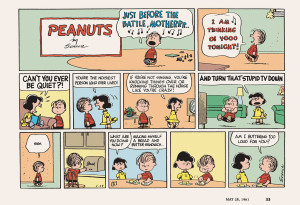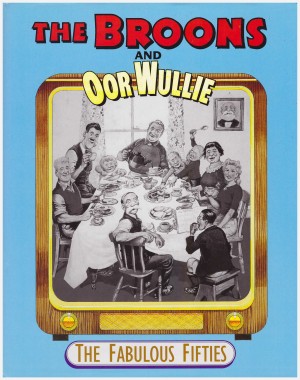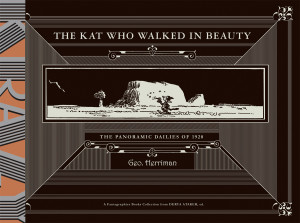Review by Woodrow Phoenix
Peanuts Every Sunday 1961-1965 is the third in a series of ten big hardcover volumes, each containing a half-decade’s worth of Peanuts Sunday strips by Charles M. Schulz. The line art has been carefully restored, and then coloured to match original Sunday paper tear sheets. The new colouring is the work Joanne Bagge, crafted to duplicate the feel of the strips as originally printed on newsprint – no bright whites, but subtly greyer and yellower tones for a mellow, golden appearance. Smaller versions of these Sunday strips are all available in black and white in the Complete Peanuts volumes, but this is the first time they have been reprinted together and in full colour since their initial publication in Sunday newspapers, fifty years ago.
If you have never read Peanuts, but want to see what it’s all about, or if you’re a fan who wants to start reading the strips again, this third collection is the book to get, as all the different strands of Charles M. Schulz’s storytelling, cartooning and joke-telling skill come together to their full hilarious and existential height in the 1960s. Charlie Brown battles kite-eating trees, tries to win just one baseball game and gets no nearer to kicking Lucy’s football. Snoopy’s imagination has him impersonating various creatures and famous historical figures, his doghouse attains its prominence as a central location of jokes and his blanket-stealing, bird-befriending, dancing and philosophising are in full flow. Linus and Lucy star in one of the most celebrated exchanges in the strip’s history, based on a real event in Schulz’s life with his own daughter, which he always referred to when asked where he got his ideas. Sally, Patty, Violet, Schroeder, and Frieda contribute their own manias and neuroses to the collective stew. This is the essential volume of Schulz at his greatest.
These books are over twice as large as the Complete Peanuts collections and the almost poster-sized pages look very striking. The excellent production presents these strips in the best possible way. This volume is introduced by author Luc Sante, and there is the usual short biography of Schulz by Gary Groth.





